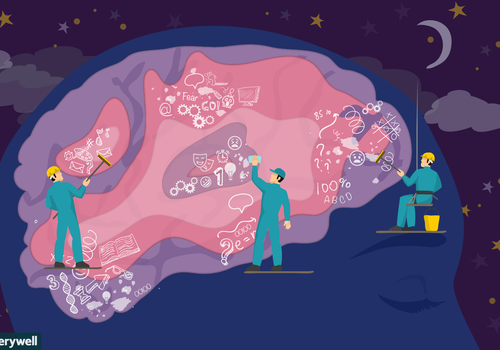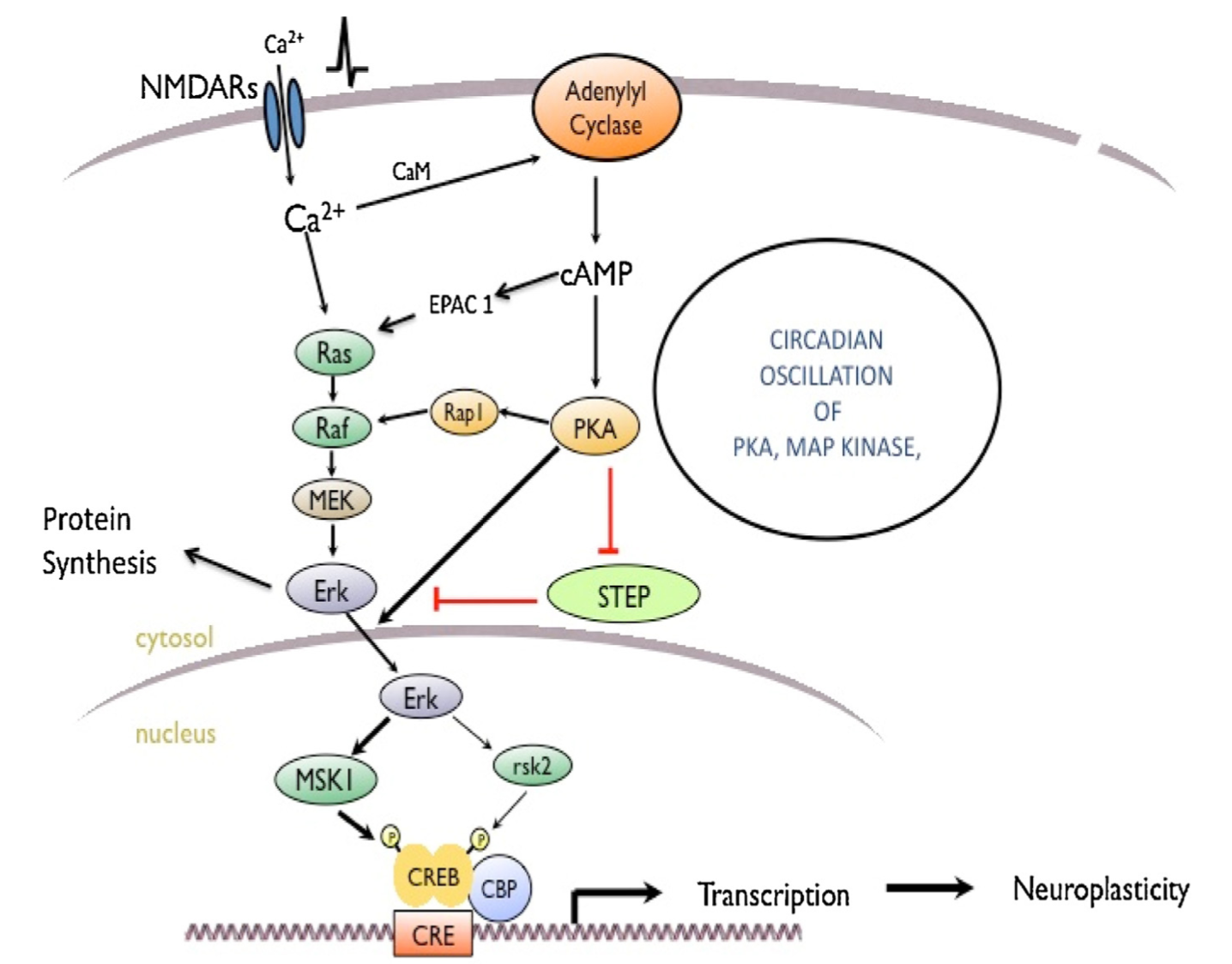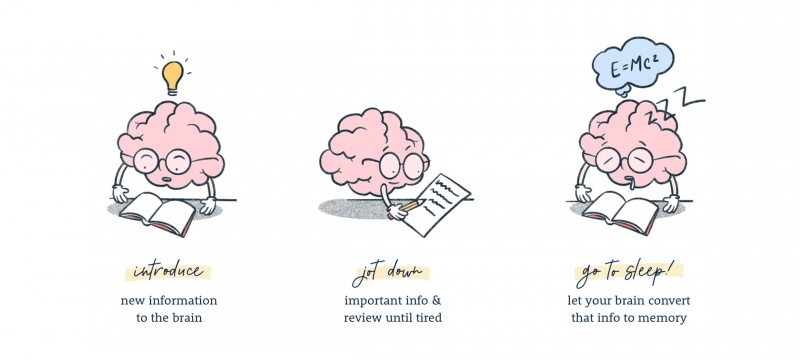Sleep
Sleep is a natural process every human requires for survival. This is a state of reversible unconsciousness and decreased motor activity. On average adults 18+ should achieve 7-9 hours of sleep per night. Sleep is not only necessary for survival, but it plays a vital role in good health and well-being.

When you sleep the brain resets itself, it removes toxic waste byproducts that accumulated during the day. This mechanism has been coined the brain’s ‘garbage disposal system’, like in Figure 1. It is as if a garbage collector comes through the brain during sleep, removes all waste, and when you wake up you and your brain are refreshed and ready to function normally.
Sleep studies have found strong links connecting adequate sleep to better productivity, increased concentration, lower weight gain risk, better calorie regulation, greater athletic performance, lower risk of heart disease, depression prevention, lower inflammation, and more benefits. For stressed out college students, they may believe they don’t have time for sleep. However, sleeping may improve their grades.
Memory Mechanism
Figure 2 is the general model of how memories are formed in our brain, the actual neurological mechanisms are still quite hazy but there are some knowns. The hippocampus is crucial from memory formation, this is where the term hippocampal memory comes from. In one patient, who had their temporal lobes removed to aid in severe epilepsy, they could remember everything before the procedure but were unable to make new memories. Therefore, suggesting the importance of the hippocampus with memory formation.

With time a memory can become stronger and resilient to disruption, and the level of strength is often dependent on the emotional salience attached to that memory. The way emotion affects memory formation is on a U-shaped curve. With optimal memory strength being a level of moderate stress and emotion. Either side will drop off if not enough emotion is felt or if too much is felt.
From an animal study in which rats were trained with the inhibitory avoidance (IA) task (a task that would elicit some level of fear and stress, thus, ensuring optimal encoding conditions), researchers found that the activation of the pathways mediated by transcription factors cAMP response element binding protein (CREB) is required for IA memory consolidation. Several studies have concluded that CREB-C/EBP is an evolutionarily conserved molecular pathway of long-term plasticity and memory formation.
In this same study, they found that in the dorsal hippocampus, glucocorticoid receptors (GRs) controlled the rapid learning-dependent increase of CREB phosphorylation and the expression of the immediate gene activity-regulated cytoskeleton-associated protein (Arc), as well as the increase in synaptic phospho-CaMKIIa, phosphor-synapsid-1, and AMPA receptor subunit GluA1 expression. They also found that inhibition of GRs in rat hippocampus significantly reduced the phosphorylation of the tropomyosin receptor kinase B (TrkB), extracellular-signal-regulated kinase 1/2 (ERK1/2), protein kinase B, and phospholipase C. Essentially, activation via GRs cause an increase in molecules and signaling that are implicated in memory consolidation and inhibition of GRs diminishes memory consolidation, figure 2 provides summarized view of this idea.. The mechanisms activated by GRs which are implicated in long-term memory formation are: pathways activated by CREB, MAPK pathway, CaMKII activation, and BDNF expression. They concluded that the BDNF-dependent pathway was a key downstream effector of GR activation during memory consolidation.
But where does sleep come in?
Sleep and Memory

Memory consolidation depends on Ca2+ activating the cAMP/MAPK/CREB pathway. This pathway works with a circadian oscillation, like the circadian rhythm associated with sleep. Figure 3 shows the progression of this pathway to gene transcription and protein synthesis. Within this mechanism CRE-mediated transcription and protein synthesis is positively regulated, therefore when this pathway is activated mechanisms are occurring to aid memory consolidation. This pathway reaches activation in REM and light phase sleep, suggesting that memories are maintained over the time of sleep by oscillating activation of the MAPK pathway. Therefore, when you are asleep not only is your brain resting but it is also encoding the day’s events so you may remember them later. These memories are strengthened when you are achieving proper sleep and are able to cycle through the different stages of sleep.
A student would benefit greatly from this knowledge. If a student has an exam the next day, they may feel studying all night will benefit them more than getting a good night’s sleep. This is not the case. Memories are being strengthened in sleep. Thus, if you cannot seem to remember the PKAs of all the amino acids, look at them before you go to sleep, and your brain will do the work for you.
References:
http://dx.doi.org/10.1016/j.neures.2017.04.011
